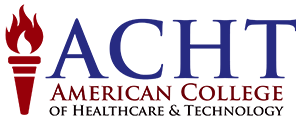If you are looking to launch a career in healthcare administration then you will need to have professional training that includes a focus on new technology that is being used in across the healthcare industry.
An example of one area where technology is revolutionizing the healthcare administration sector is with electronic health records.
“In 2009, only 16 percent of U.S. hospitals were using an electronic health records,” wrote Akanksha Jayanthi for Hospital CIO. “By 2013, about 80 percent of hospitals eligible for CMS’ meaningful use incentives program had incorporated an EHR into their organizations.”
The use of electronic health records is changing the way today’s healthcare professionals are working and means employers are looking for trained health information technology professionals.
“For such a long time we had such disparate systems, meaning you had one system that did pharmacy, one did orders, one that did documentation,” says Jeff Sturman, partner at Franklin, Tenn.-based Cumberland Consulting Group. “Integrating these systems into a single platform, or at least a more structured platform, has allowed more integrated and efficient care for patients.”
Jayanthi adds that while the EHR has already created big strides in the centralization and efficiency of patient information, it can also be used as a data and population health tool for the future.
“There’s going to be a big cultural shift over the next several years of data-driven medicine,” says Waco Hoover, CEO of the Institute for Health Technology Transformation in New York. “Historically, that hasn’t been a big part of how medicine is practiced. Physicians go to medical school and residencies, but each organization has its own unique ways they do things. That’s one of the reasons we see varied care all over the country. When data is what we’re making decisions off of, that’s going to change and improve outcomes of the consistency of medicine delivered.”
In his same article, Jayanthi also discusses portal technology.
“Patients are increasingly becoming active players in their own healthcare, and portal technology is one tool helping them to do so,” Jayanthi said. “Portal technology allows physicians and patients to access medical records and interact online. Mr. Sturman says this type of technology allows patients to become more closely involved and better educated about their care. In addition to increasing access and availability of medical information, Mr. Hoover adds that portal technology can be a source of empowerment and responsibility for patients.
“It’s powerful because a patient can be an extraordinary ally in their care. They catch errors,” he says. “It empowers the patient and adds a degree of power in care where they can become an active participant.”
Another technology growth in the healthcare industry is with self-service kiosks.
“Similar to portal technology, self-service kiosks can help expedite processes like hospital registration,” Jayanthi said.
“Patients can increasingly do everything related to registration without having to talk to anyone,” Mr. Higman says. “This can help with staffing savings, and some patients are more comfortable with it.”
Automated kiosks can assist patients with paying co-pays, checking identification, signing paperwork and other registration requirements. And while this may seem like a replacement for healthcare workers, it actually means more workers will be needed to help gather the data and oversee a network of kiosks.
With the advances in health electronic records and other technology, now is a great time to consider a new career as a health information technology professional.
Working as a health information technology professional can lead to a long-term career in the growing healthcare field. These positions are expected to be in high demand over the next several years and can be great options for jobseekers looking to enter the growing medical field, but lack a medical degree. Training from A Technical College can also prepare a person for a variety of specific careers within the healthcare field.
The medical field is consistently ranked one of the nation’s fastest growing job sectors and the Bureau of Labor Statistics projects health information technology (which is home to both medical office professionals and medical assistants) will be one of the 20 fastest growing occupations in the country.
With professional training as a health information technology professionals at A Technical College, students are prepared for a variety of in-demand careers throughout the medical industry that require specific medical knowledge and experience that A Technical College specializes in teaching its students.
